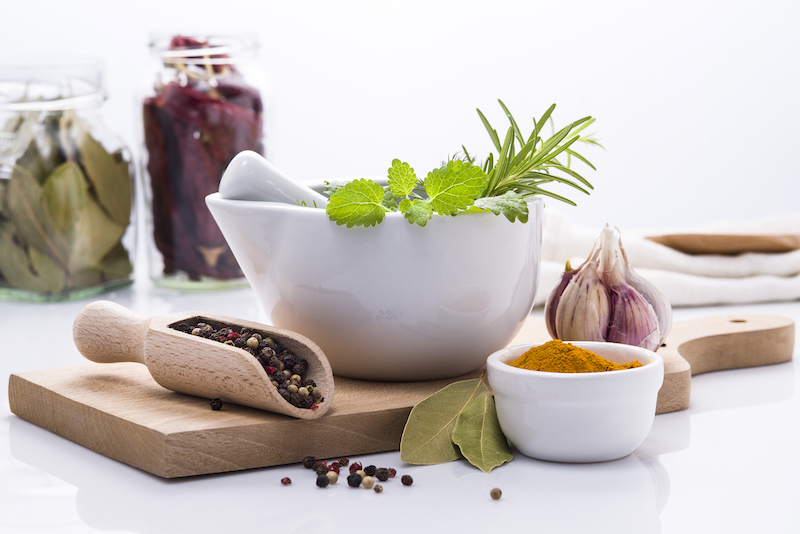Perimenopause and menopause are natural processes that every woman goes through. They are not diseases or disorders, so why do so many women go to the doctor when they enter this period of their lives? The truth is, if your body isn’t balanced, the symptoms of menopause can be pretty miserable. Hot flashes, mood changes, weight gain… you may feel like your body is out of control and you don’t know how to get that control back again. Don’t worry. You’re not alone. And even better? There are things you can do to control those symptoms without resorting to prescriptions.
(Suffering from a cold this winter? Read this post!)
Herbs to Prevent Symptoms of Menopause
Herbs work wonderfully for preventing menopause and perimenopause symptoms because they are able to adapt to your body’s needs. Because of this ability, they can adapt to your hormonal fluctuations, helping to ease symptoms. Here are some of the best herbs for menopause:
- Ashwagandha
- Sometimes called Indian Ginseng, Ashwagandha is an adaptogen herb that can help improve libido, improve sleep, and reduce depression and anxiety.
- Black Cohosh
- Native Americans knew that Black Cohosh root was useful in treating sleep disturbances, irritability, hot flashes and night sweats experienced during menopause and perimenopause. It may also increase vaginal lubrication.
- Chasteberry
- Also known as Vitex, Chasteberry balances the pituitary gland which in turn balances the production of estrogen and progesterone in your body. It can help relieve hot flashes, depression and the irregular menstrual cycles of perimenopuase.
- Dong Quai
- This herb has been used in Chinese medicine for over 2000 years and is known as an herb especially helpful for women. It helps fight fatigue and may help with irregular menstrual cycles.
- Hops
- Not just for making beer, hops have a powerful form of phytoestrogen called 8-prenylnaringenin. When taken daily, studies have found that 8-prenylnaringenin can prevent hot flashes, improve sleep, and reduce irritability.
- Passionflower
- This beautiful flower is used to treat insomnia because of its ability to relax and calm you. It’s also useful in treating anxiety because it helps increase the production of GABA in the brain. In fact, research has shown it to work better than some prescription medications for treating anxiety with out the side effects.
Did you know? Herbs can not only do wonders for preventing your menopausal symptoms naturally, but they can also help slow or even prevent signs of aging, boost your immune system, cure insomnia, among other things! To learn more, check out my books The Power of Anti-Aging Herbs & Vitamins and The Power of Bio-Identical Hormones.
Lifestyle Changes
Herbs can really work wonders for your health, but to work their best you should also follow a healthy lifestyle. Daily exercise, at least 30 minutes a day, will help help control menopausal weight gain, improve your mood and help you sleep better. A proper diet is also essential. Make sure you have plenty of fruits and vegetables at each meal. Don’t forget to get enough protein and don’t be afraid of healthy fats. Eliminating grains can also produce amazing results in your overall health.
If you’re already having trouble sleeping, try to stick to a sleep schedule, even on the weekends, because adequate sleep is essential. Of course, make sure to drink plenty of clean, fluoride-free water. Eliminate processed foods and focus your diet on whole foods and the menopausal period of your life will be just another happy chapter in your book.


Leave a Reply
You must belogged in to post a comment.